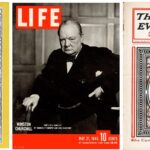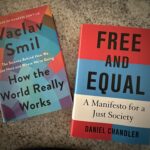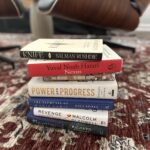Judith Miller went to jail today. If you don’t know the story, she is a New York Times reporter who, according to today’s New York Times story, refused to reveal her confidential source to a grand jury investigating the disclosure of a CIA operative.
"If journalists cannot be trusted to guarantee confidentiality, then journalists cannot function and there cannot be a free press," she read from a statement as she stood before Judge Hogan. "The right of civil disobedience is based on personal conscience, it is fundamental to our system and it is honored throughout our history."
Here is a summary of what has happened thus far in this complicated case. "This leak investigation began after undercover CIA officer Valerie Plame’s identity was published by columnist Robert Novak in a July 2003 column. Novak cited two unnamed "senior administration officials" as his sources. Following the Novak column, several other journalists, including Matthew Cooper of Time magazine, reported receiving the same information. The leak has been characterized as a politically-motivated attack on Plame’s husband, former Ambassador Joseph C. Wilson IV, because Wilson publicly criticized the Bush administration’s assertion that Iraq had been attempting to buy uranium from Niger to make nuclear weapons."
Supposedly, Judith Miller was working on the story about who leaked the information when the grand jury investigating the matter issued a subpoena for Miller to reveal her source. She hasn’t written the story, with or without the confidential source, and still the court ruled that she betray her source. If you don’t know anything about the case, I urge you to read the link above. It is an important day in journalism.
There is much to understand here and the story is very complicated. Several things make this case unique. One, many states have laws protecting journalists from revealing their sources. Yet, this is a federal case, and there is no national shield law. Another unique factor is that a crime was involved. One analyst said that the reporter was required by law to reveal a source because this source was "essentially an eye-witness to a crime." That’s what makes this case different.
University of Chicago law professor Jeffrey Stone said in an interview that the New York Times does not have rights higher than the U.S. legal system. He argues the case is not a source privilege. The reason for such a privilege (much like attorney-client privilege) is not to protect the attorney, the doctor or the reporter, but to protect the person disclosing the information from the fear that they will suffer harm for doing so. Yet, in this case those making the disclosure were committing a crime, argues Stone, and there is no public policy that deals with that. He uses the analogy of a patient seeking advice from a doctor in keeping the truth in order to defraud an insurance company, that the identity of this person can not be kept secret in a doctor-patient relationship.
So, if this is your belief. If you feel that there is good reason for Miller to go to jail, then prosecutors must believe that a crime has been committed. If it’s enough of a crime to waive any shield laws and send a reporter (who has yet to even use her private source in her reporting) to jail for simply keeping her word to a source, then it’s enough of a crime to prosecute who leaked the name. I think that when the bailiff took her away, the bar has been raised. The talk shows have already given the leak a name: Karl Rove. Already, you hear the PR machine starting to say he didn’t really "knowingly" commit a crime. I think that now that an innocent person is in jail, it’s very hard not to call the original act a crime.
Where was Novak in this entire scenario? What else is going on? Why isn’t he being held to the same fire to identify his source when he wrote the original column outing Valerie Plame? Isn’t it ironic that the entire case evolves around uncovering a CIA operative’s identity? Isn’t it also ironic that Judith Miller goes to jail on the very day that Bob Woodward’s book, The Secret Man, hits the shelves? We live in a different world.





